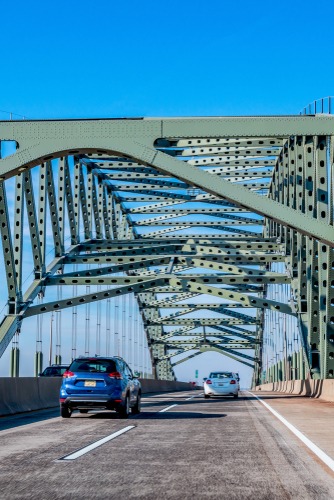
The Pennsylvania Department of Transportation (PennDOT) recently announced the launch of its PennDOT Pathways Major Bridge Public-Private Partnership (P3) initiative, which will use the tolling of nine major bridges in need of repair or replacement as a funding method.
Following the announcement, state Sen. Wayne Langerholc (R-35) and state Rep. Matthew Dowling (R-Fayette/Somerset) released statements criticizing the bridge tolling plan.
“A reliable, efficient and well-maintained transportation system is vital to our Commonwealth’s economy and our future,” Dowling said. “We need to be having serious conversations about how to finance much-needed bridge and highway improvements in every area of the state. Tolling a few random bridges is not the kind of comprehensive solution we need.”
In addition to his statement, Langerholc also issued a co-sponsorship memo to introduce legislation that would bring transparency and accountability within the P3 Board, which was established under Act 88 of 2012.
“I have serious concerns with PennDOT’s authority to essentially tax and appropriate funds without additional oversight from the General Assembly,” Langerholc said. “At a time when transparency to our constituents is of paramount concern, we must ensure the voices of our constituents are heard and that they are involved in the process.”
Langerholc did acknowledge that there are several P3 projects that have benefitted the state’s transportation system, such as the construction of compressed natural gas fueling stations at transit agencies and the rapid replacement of 558 state-owned bridges.
“We must work together and in a bipartisan manner to find creative ways to address funding discrepancies and ensure that revenue is properly allocated to the sources it is derived for,” he said.
According to Langerholc, the Major Bridge P3 initiative is the first time in the P3 Board’s history to consider a proposal with user fees.
Dowling argued that while the plan is set out to use the toll money to repair and revamp the bridges being tolled, the same thing was told to turnpike drivers whose now “skyrocketing tolls” are being used for projects such as subsidizing mass transit in Philadelphia.
“And while officials claim the tolls would be ‘only’ a dollar or two, consider a worker who crosses a bridge two times a day for work. That’s 10 trips a week and 520 trips a year. It adds up at a time when many Pennsylvanians don’t have money to spare,” Dowling said. “I cannot fathom why the governor would want to add this burden on top of his proposals to increase income taxes, increase debt and increase energy costs.”
The nine projects being considered for the initiative include:
- I-78 Lenhartsville Bridge Replacement Project (Berks County);
- I-79 Widening, Bridges and Bridgeville Interchange Reconfiguration (Allegheny County);
- I-80 Canoe Creek Bridges (Clarion County);
- I-80 Nescopeck Creek Bridges (Luzerne County);
- I-80 North Fork Bridges Project (Jefferson County);
- I-80 Over Lehigh River Bridge Project (Luzerne and Carbon counties);
- I-81 Susquehanna Project (Susquehanna County);
- I-83 South Bridge Project (Dauphin County); and
- I-95 Girard Point Bridge Improvement Project (Philadelphia County).
PennDOT is currently analyzing potential structures for project bundles to ensure fair, competitive, and local participation in the P3 procurement to replace those bridges. It anticipates issuing a Request for Information to industry partners this week to gather industry feedback on the project, with a Request for Qualifications anticipated this spring.